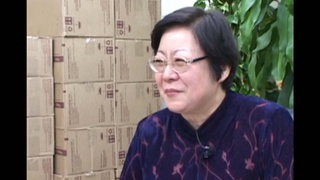Entrevistas
Family was shipped back to Japan after the war
The news of end of the war reached, and we all came out of the jungle, and we were picked up by the US Army and taken to the beach where they had camps. And we were there about three months: from September to November, and then taken to a big army cargo ship by the PVS boat. And at first, everybody thought that we were going to be drowned purposefully, being on the truck, because it started going to the beach and water. And then it started to move, and we were amazed that there was – a man said, “This is why we lost the war.”
And – but it took ten days for us to reach Japan, and we arrived in Hiroshima, and we saw the devastation and destruction from the deck, and some of the adults were so shocked, and they fainted, and some of them were just froze, because they imagined the whole Japan was like that. And I – as a child I didn’t really understand, but I saw the – I remember this scene.
And we were given like ¥10, which is enough money at the time to live like – maybe a week, at most. And then the free tickets to any destination, and we got on the train next day, and it took us about three, four days to reach Shizuoka and reach the – the countryside, Yui, that’s where my father’s homeland is. And whole Japan was having a difficult time to rebuild, still going through the hardship, so we were not welcomed by the – the family – the oldest son brother of my – my father.
Fecha: July 12, 2017
Zona: California, US
Entrevista: Mitsue Watanabe, Yoko Nishimura, Leighton Okada
País: Watase Media Arts Center, Japanese American National Museum









